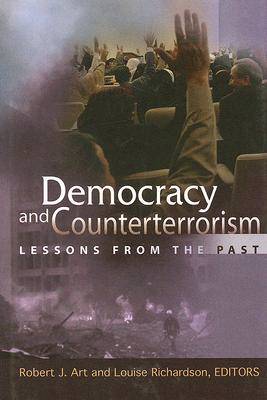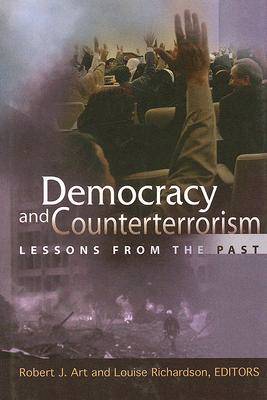
- Afhalen na 1 uur in een winkel met voorraad
- Gratis thuislevering in België vanaf € 30
- Ruim aanbod met 7 miljoen producten
- Afhalen na 1 uur in een winkel met voorraad
- Gratis thuislevering in België vanaf € 30
- Ruim aanbod met 7 miljoen producten
Zoeken
Democracy and Counterterrorism
Lessons from the Past
Robert J Art, Louise Richardson
Hardcover | Engels
€ 64,95
+ 129 punten
Omschrijving
Combating terrorism is nothing new for democracies. Over the course of decades, a wide range of democratic states has encountered an array of terrorist groups and, moreover, has often prevailed against them. As this timely and stimulating volume makes clear, the United States can learn much from fellow democracies to help it in its current war against al Qaeda and affiliated groups. "Democracy and Counterterrorism" offers unparalleled breadth in its comparative study of the policies, strategies, and instruments employed in the fight against terrorism. The distinguished contributors some scholars, some practitioners, and all renowned experts examine no fewer than fourteen cases, featuring thirteen states and sixteen major terrorist groups. Each case study includes a brief overview, a detailed analysis of the policies and techniques that the government employed, and an assessment of which measures proved most effective and instructive. The substantial conclusion draws together common threads from the individual cases and asks what lessons their collective experience can offer to the democracies now battling al Qaeda and the global jihadists. Among the answers sure to interest policymakers as well as academics is that the constraints within which democracies must fight terrorism are actually a source of strength; democratic governments that seek simply to obliterate terrorism by force usually succeed only in making their problems worse."
Specificaties
Betrokkenen
- Auteur(s):
- Uitgeverij:
Inhoud
- Aantal bladzijden:
- 639
- Taal:
- Engels
Eigenschappen
- Productcode (EAN):
- 9781929223947
- Verschijningsdatum:
- 1/01/2007
- Uitvoering:
- Hardcover
- Formaat:
- Ongenaaid / garenloos gebonden
- Afmetingen:
- 161 mm x 232 mm
- Gewicht:
- 1215 g

Alleen bij Standaard Boekhandel
+ 129 punten op je klantenkaart van Standaard Boekhandel
Beoordelingen
We publiceren alleen reviews die voldoen aan de voorwaarden voor reviews. Bekijk onze voorwaarden voor reviews.











